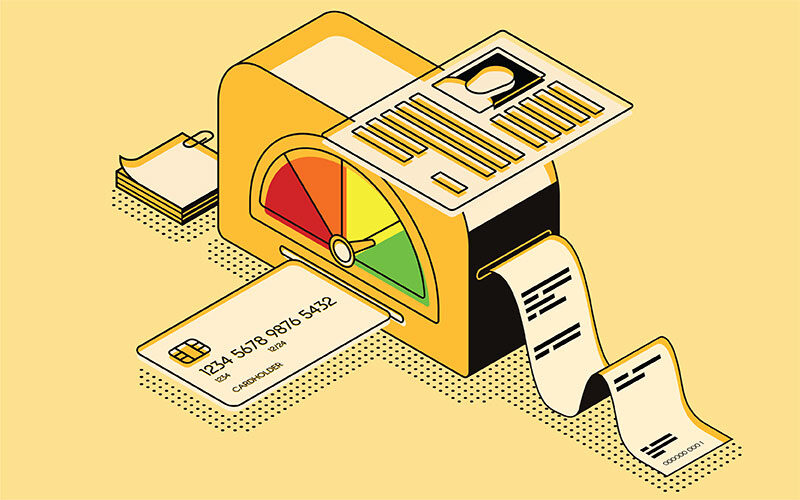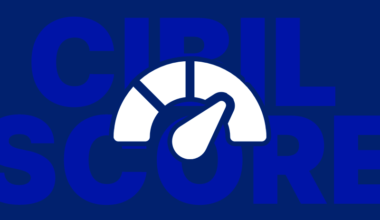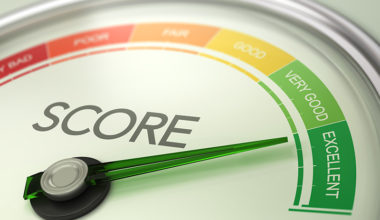Credit score is a number that indicates a person’s creditworthiness by evaluating their credit history. It usually ranges between 300 to 900 and predicts the likelihood of timely loan payments by the borrower. A higher credit score increases the possibility of loan approval, a larger loan amount, and a lower interest rate.
When deciding whether to approve a loan for an individual, financial institutions and banks take into account their credit scores, which are calculated by analyzing several factors such as their credit repayment history, outstanding loans, and credit card usage. In this article, you will discover the benefits of having a good credit score when it comes to securing a loan.
How Can a Good Credit Score Help in Availing a Loan?
Lenders check your credit score to see if it’s risky to lend you money. If you have a good credit score, it’s easier to get a loan approved and you’ll have to pay less interest. People with high credit scores are seen as less risky and are better at making payments on time. But if you have a low credit score, you might not get the loan or you might have to pay more interest because there’s a higher chance you won’t pay it back on time.
Having a good credit score is not just helpful for getting loan approval and lower interest rates. It also gives you more power to negotiate loan terms like a lower interest rate or a longer time to pay it back. To keep a good credit score, make sure to pay bills on time, use credit responsibly, and regularly check your credit report for mistakes.
Here are some ways in which having a good credit score can help you secure a loan:
- Higher chance of approval: When deciding whether to approve a loan, lenders see a good credit score as proof that the borrower is likely to repay the loan on time. So, having a good credit score can improve your chances of getting loan approval.
- Lower interest rates: Lenders may offer lower interest rates to borrowers with good credit scores, as they are seen as less risky. This can save you money over the life of the loan.
- Quicker loan processing: Lenders may prioritize borrowers with good credit scores, as they represent lower risk. This can result in faster loan processing and approval times.
- More negotiating power: Having a good credit score can give you leverage when negotiating loan terms, allowing you to negotiate better interest rates, fees, or repayment terms.
- Better loan terms: Borrowers with good credit scores may be eligible for more favorable loan terms, such as longer repayment periods, larger loan amounts, or lower fees.
Overall, having a good credit score can significantly increase your chances of securing a loan and obtaining favorable loan terms.
Impact of a Poor Credit Score on Loan Applications
A poor credit score can act as a significant hindrance during the loan application process. Here are some ways it can impact your loan application:
- Difficulty in loan approval: Poor credit scores make it harder to get approved for loans.
- Higher interest rates: Lenders may charge higher interest rates due to the perceived risk of lending to someone with a poor credit score.
- Limited loan options: You may have fewer loan choices and may need to rely on subprime lenders with less favourable terms.
- Smaller loan amounts: Lenders may offer lower loan amounts, limiting your ability to meet significant financial needs.
- Collateral or cosigner requirements: Poor credit may necessitate providing collateral or having a cosigner secure a loan.
- Negative impact on future credit: Loan rejections and late payments can further damage your credit, making it harder to access favourable loan terms in the future.
Improving your credit score over time is crucial to enhance your loan eligibility and secure better loan terms.
Impact of Good and Bad Credit Scores on Loan Application Process
A good credit score can significantly increase your chances of securing a loan and obtaining favorable loan terms, such as lower interest rates and larger loan amounts. In contrast, a bad credit score can limit your loan options, result in higher interest rates, and necessitate collateral or cosigners to secure a loan.
| Difference | Good Credit Score | Poor Credit Score |
| Loan Approval | Higher chances of loan approval | Difficulty in getting loan approved |
| Interest Rates | Lower interest rates | Higher interest rates |
| Loan Options | More options and access to favourable terms | Limited loan choices, relying on subprime lenders |
| Loan Amounts | Higher loan amounts | Smaller loan amounts |
| Collateral/Cosigner | Generally not required | May require collateral or cosigner to secure a loan |
| Future Credit | Positive impact, easier access to loans in the future | Negative impact, harder to secure favourable loan terms in the future |
How to Improve Credit Score?
If your credit score is low or fair, make sure to carefully follow the following steps:
- Set reminders to ensure you don’t miss any credit payments.
- Keep your old credit cards in good standing to maintain a long credit history.
- Keep track of your credit card limit to monitor your spending.
- Borrow from a diverse range of credit lines to potentially secure lower interest rates and larger loan amounts.
- Consider opting for a longer repayment period while taking out a loan.
- Pay off one loan at a time before taking on another.
Also Read: 9 Best Practices to Improve Your Credit Score
Conclusion
Having a credit score between 750 and 900 makes it probable to obtain a loan with a low interest rate. To maintain a good credit score, it’s important to pay credit bills on time, use credit responsibly, pay off credit debts, and limit hard inquiries. Although some banks and financial institutions may provide loans to borrowers with fair or low credit scores, eligibility needs to be confirmed by talking to them directly. Generally, it’s recommended to aim for a good credit score to increase the chances of securing a loan with favorable terms.








